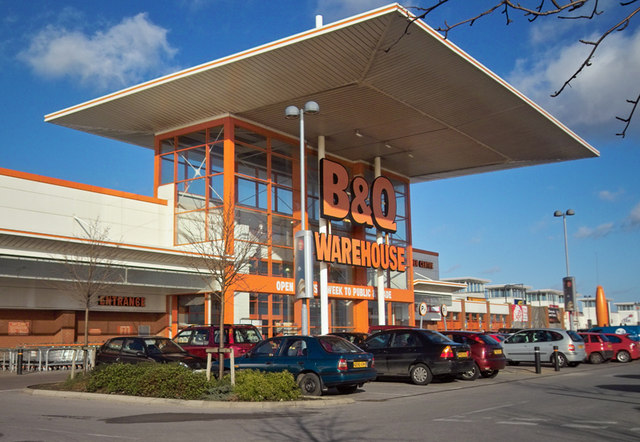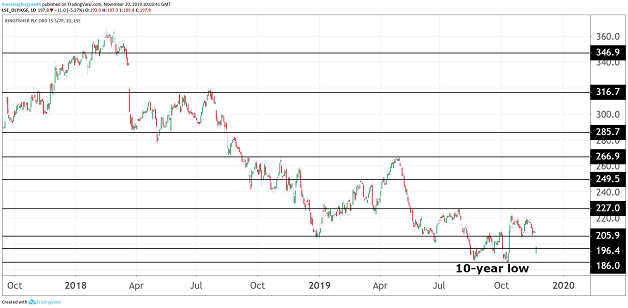Kingfisher share recovery fails spectacularly…again
Not for the first time, hopes that the DIY retail giant was on a path to recovery have been dashed.
20th November 2019 10:52
by Richard Hunter from interactive investor
Not for the first time, hopes that the DIY retail giant was on a path to recovery have been dashed.

The DIY chain’s new chief executive could be forgiven for thinking that he has been handed a poisoned chalice.
The Kingfisher transformation plan has simply not been transformative to date. The company bemoans its organisational complexity and, as is often the case in retail, competitors move on quickly, leaving groups such as Kingfisher running to stand still.
Quite apart from the scale of the challenges specific to the group, there are also headwinds in the form of new range implementations, lower promotional activity, softer market conditions and ongoing operational challenges in France.
- The Week Ahead: Royal Mail, easyJet, Kingfisher
- Kingfisher results reveal huge task for new CEO
- Income hunters can find great funds on ii’s Super 60 recommended list of investments
This has resulted in a set of like-for-like sales which have plunged, almost across the board. In the UK, B&Q dropped 3.4%, Castorama and Brico Depot in France fell 6.1% and 6% respectively, while there was another poor showing from International generally, with like-for-like sales down 5.2% and the larger market in Poland also dipping 3.2% within that number.
Unfortunately, the near-term outlook from the company is equally bleak and the new boss will have the combined challenges of both assimilating Kingfisher’s culture for himself as well as making the necessary improvements to the company’s fortunes.

Source: TradingView Past performance is not a guide to future performance
If there is a ray of hope, it comes in the form of Screwfix in the UK, which continues to be a silver lining. Like-for-like sales added 3.7% in the period and jumped nearly 8% overall. It therefore comes as little surprise that the company is continuing to invest in the Screwfix proposition, including the opening of new stores and ongoing price investment, in an effort to consolidate a part of the business where success is clearly evident. That said, Screwfix accounts for just 16% of overall sales and, as such, cannot rescue the company alone.
From an investment perspective, the dividend yield of 5.2% is of some solace and is adequately covered, although even the strength of the yield is partially explained by the share price decline.
Even before today’s calamitous drop, the shares had plunged 20% over the last six months and 19% over the last year, during which time the wider FTSE 100 index added 5.4%. This further decline brings Kingfisher’s status as a FTSE 100 constituent into question and, without some improvement in the lead up to the December reshuffle, the company is a strong contender for relegation.
The market consensus of the shares as a ‘sell’ has, unfortunately, been vindicated once more following this update.
These articles are provided for information purposes only. Occasionally, an opinion about whether to buy or sell a specific investment may be provided by third parties. The content is not intended to be a personal recommendation to buy or sell any financial instrument or product, or to adopt any investment strategy as it is not provided based on an assessment of your investing knowledge and experience, your financial situation or your investment objectives. The value of your investments, and the income derived from them, may go down as well as up. You may not get back all the money that you invest. The investments referred to in this article may not be suitable for all investors, and if in doubt, an investor should seek advice from a qualified investment adviser.
Full performance can be found on the company or index summary page on the interactive investor website. Simply click on the company's or index name highlighted in the article.